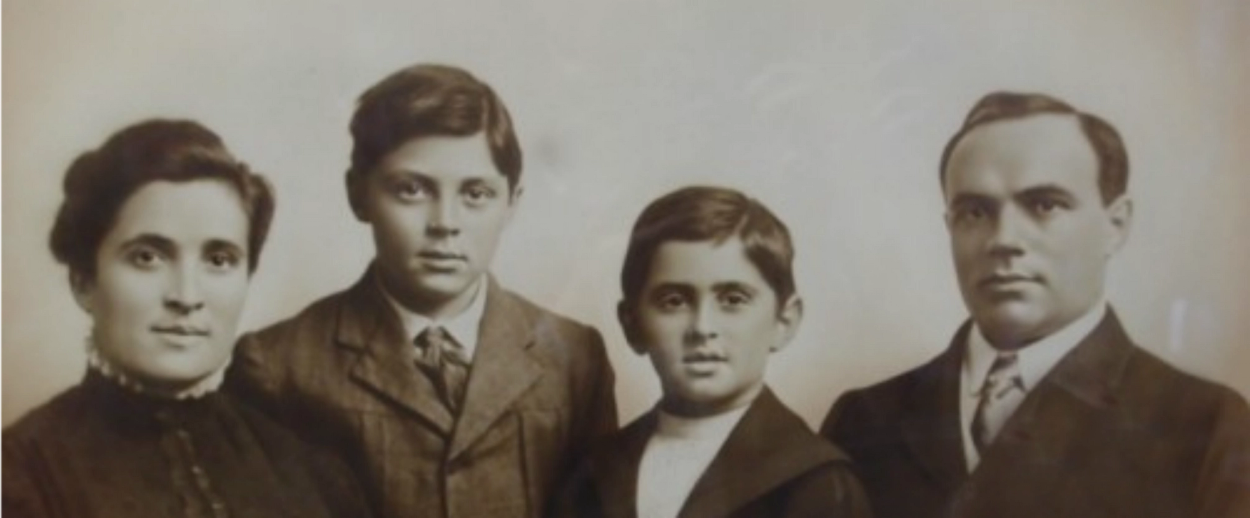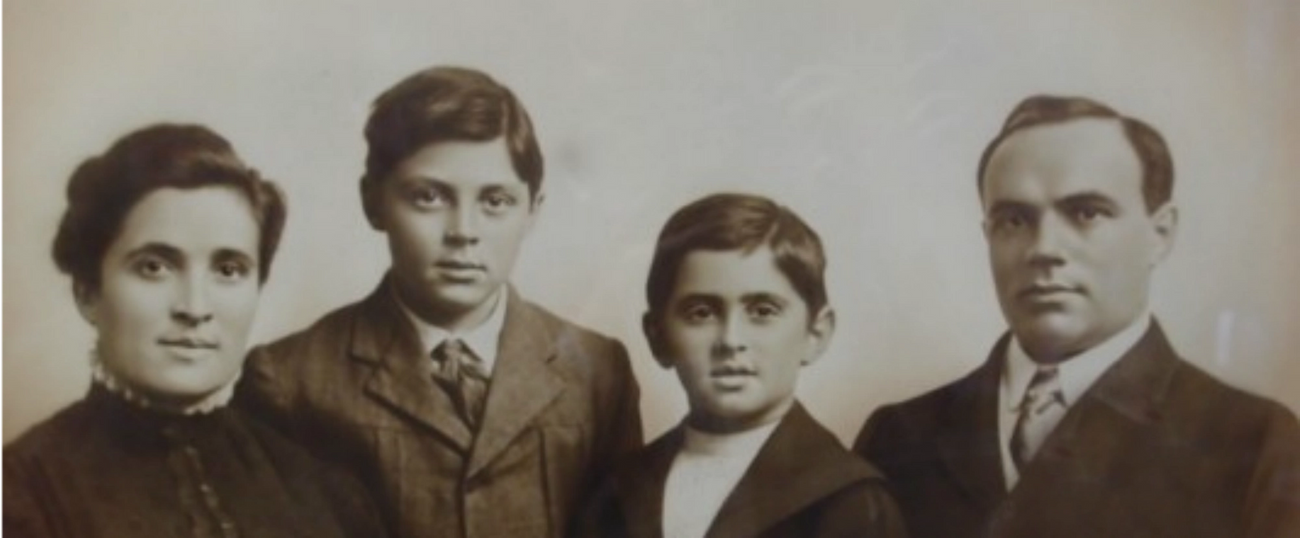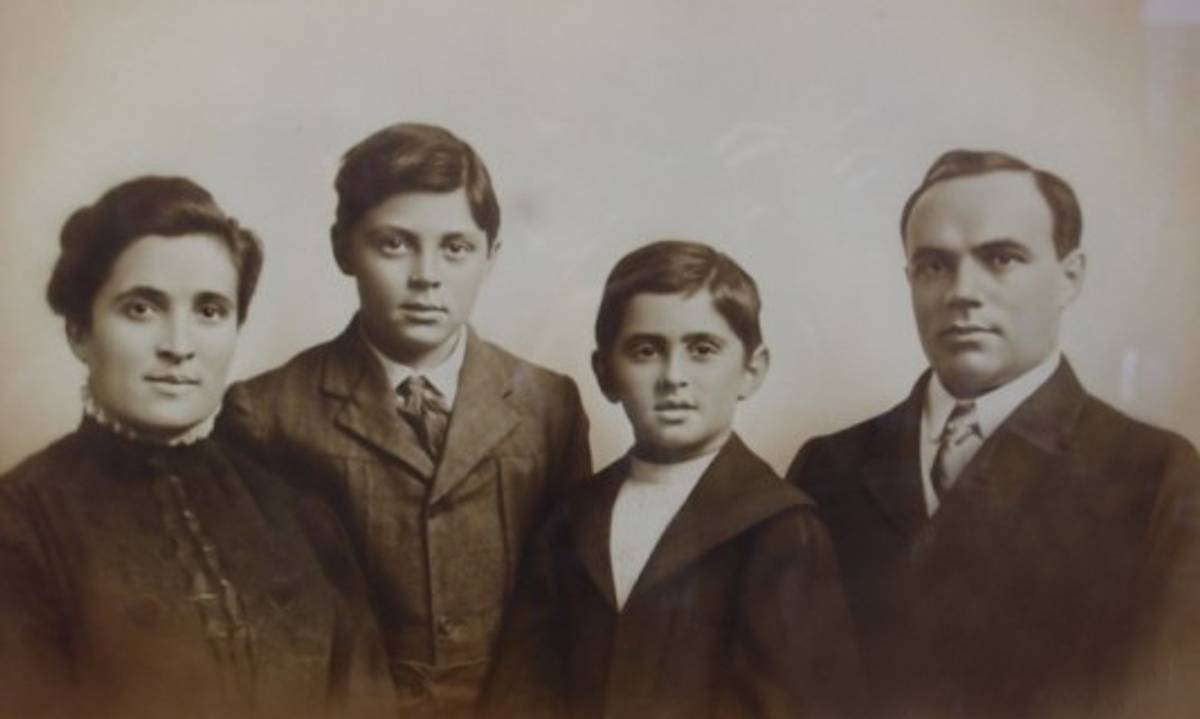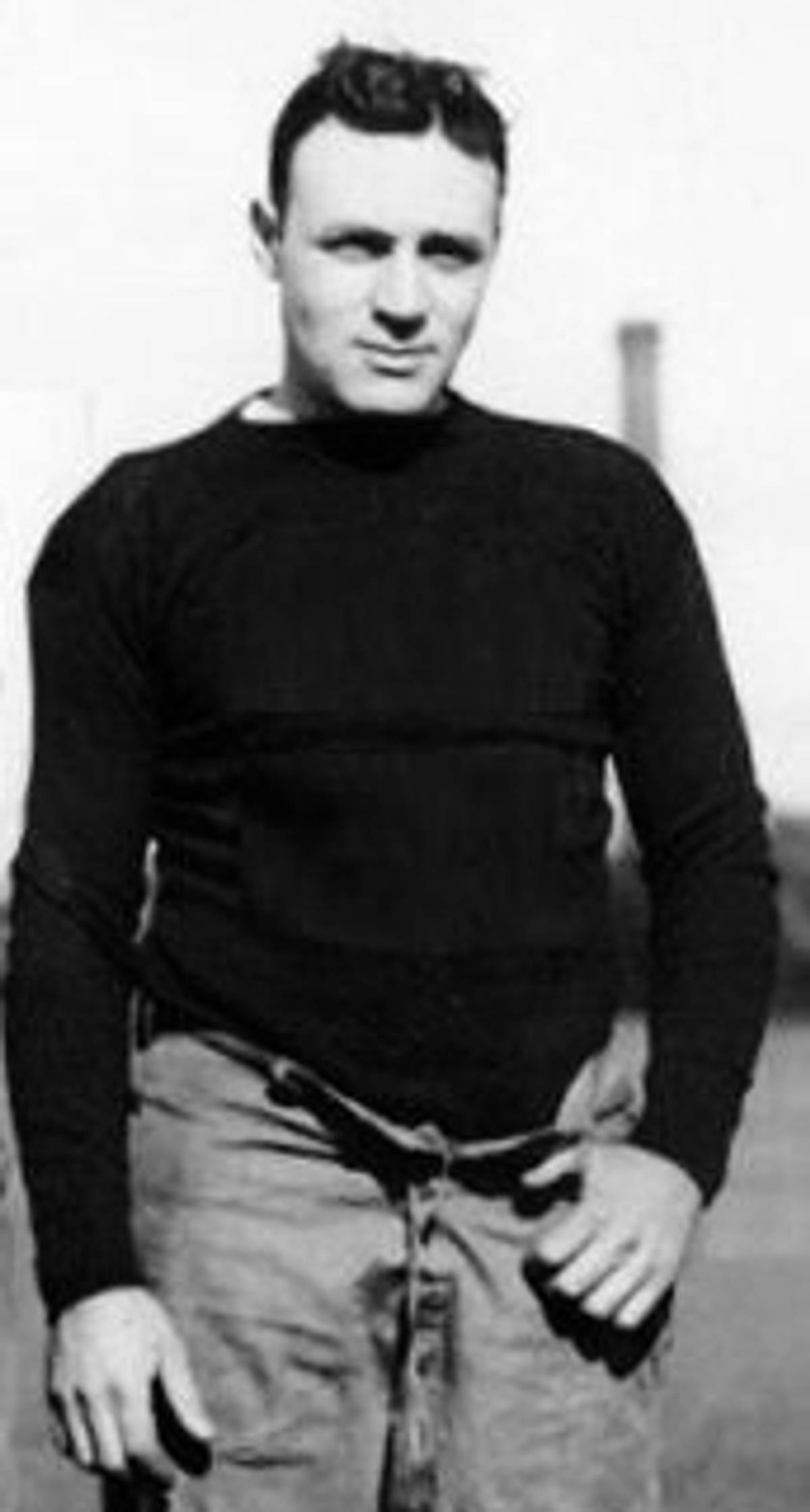The Original Jewish Brothers of the Gridiron
While at Harvard, Arnold and Ralph Horween won the Rose Bowl in 1920, then played professionally. Today, the Horweens are known for the unique leather the family company supplies for game balls.




One of the most interesting tidbits from Geoff and Mitch Schwartz’s new book are a few lines from Chapter 7, in which the NFL linemen discuss their Jewish faith, and their place in history as the first Jewish brothers to play in the NFL since 1923, when Ralph and Arnold Horween took their stances on the gridiron.
Ralph and Arnold Horween…were All-Americans at Harvard, where they starred in the backfield. They joined the Racine Cardinals of the fledgling Canton, Ohio-based American Professional Football Association and moved with the team when it became the Chicago Cardinals. Interestingly, they played using an Irish last name, McMahon. It is not clear to me exactly why they used an alias. I’ve read one theory that they wanted to protect the family name. But since the family name had been changed from Horowitz when they first arrived in the United States, you have to wonder what was going on there. Was football looked down upon? Was their family ashamed? Or were they concerned about anti-Semitism? I’m not sure what the motive was. The name game gets even stranger when you read the obituary notice for Ralph that ran in the Chicago Tribune—it mentions that Ralph was the first NFL player to live to be over one hundred years old—and discover that Ralph’s two sons have the last name Stow. Were they his stepsons? That’s another mystery.
…They both withdrew from Harvard during World War I and enlisted in the Navy. Then they came back, finished school, won the Rose Bowl, and turned pro. Eventually, Ralph went to Harvard Law School and became a patent lawyer, while Arnold ran the family business, the Horween Leather Co. And guess what: Their leather was used to make footballs for the fledgling league.
Since the NFL season kicked off Thursday night, let’s learn a bit more about the Horweens, using the Schwartz’s fine research as a hand-off.

According to For Pride, Profit, and Patriarchy: Football and the Incorporation of American Values, published in 2000, the Horweens changed their name to Horowitz, and played under Irish aliases, as mentioned above. Ralph and Arnold’s parents Isidore and Rose, however, and their ancestors before them, were the Rabinoffs, who immigrated to Chicago from Ukraine in the late 19th Century.
Ralph was two years older than Arnold, who were both a bit under 6 feet tall and weighed about 200 lbs. Their father, Isidore, founded the Horween Leather Company in 1905. “The company,” reported The New York Times, “is also notable for being the only North American producer of shell cordovan, a leather derived from the fibrous rump muscle of horses… Horween’s cordovan is renowned worldwide.” Horween leather is supplied to both the NFL and NBA for their game balls.
In the Times article, Arnold “Skip” Horween III recalls walking with his father to Wrigley field to watch Bears games (they played there for almost 50 years!). It was there that he saw his grandfather in a photograph with Knute Rockne.

(Notably, Ralph Horween played his last professional game, according to his bio from his foundation’s website, versus the Bears at Wrigley. “And for beating the Bears, he earned a whopping $475. He said that this ‘was his grubstake to go to Harvard Law School.’ “)
But perhaps the best anecdote from that Times article is one in which Arnold Horween dislocated his shoulder during a “long-age game.” And as he lay there, Charlie Chaplin and Douglas Fairbanks held him down as they popped his shoulder back in.
Arnold Horween died in 1987 at the age of 85. Ralph Horween died at 100 years old in 1997.
Previous: Jewish Giants of the NFL
Jonathan Zalman is a writer and teacher based in Brooklyn.